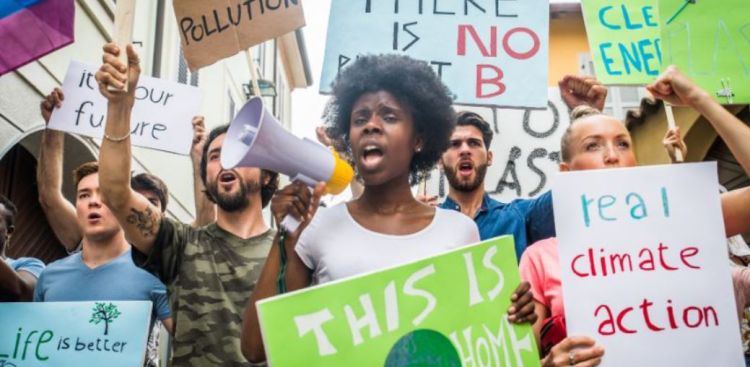Demands for activism to be led by those with lived experience explored in new journal article

Demands for activism to be led by those with lived experience explored in new journal article
The modern demand for political and social activism to be led by those with lived experience is examined in a new journal article co-written by a Lecturer in the Faculty of Arts, Humanities & Cultures and a Professor in the Faculty of Social Sciences.
Recent years have seen a rise in calls for solidarity with victims of oppression and injustice. At the same time, there is a growing demand that activism and theorising in response to such injustice be led by or co-produced with those who have lived experience of the oppression.
In a new article for the journal Global Justice: Theory, Practice, Rhetoric, Dr Joshua Hobbs, Lecturer and Consultant in Applied Ethics at the School of Philosophy, Religion and History of Science, and Dr Kerri Woods, Associate Professor of Political Theory at the School of Politics and International Studies define this s a ‘normative demand for deference (NDD) to lived experience’.
Hobbs and Woods:
- explain why deference matters for political solidarity
- explore the core dilemma of solidarity: ‘that to be neutral in the face of oppression is not a morally defensible option, yet to seek to speak or act on injustices from which we are ourselves insulated risks compounding the injustice’
- analyse the potential benefits of adhering to the NDD, highlighting both a commonly accepted benefit and a neglected but important good in ‘bearing witness’
- defend a valuable role for a second-order form of engagement with the lived experience of others through reading, films, and similar media.
“We believe that deferring to the knowledge and experience of those with lived experience is crucial to the practice of solidarity,” says Dr Joshua Hobbs, “yet adhering to the NDD also raises real challenges for those who want to be allies”.
“For instance, the literature focuses on what we call a ‘gold standard’ model of direct engagement, wherein allies are direct participants in activist movements led by people with lived experience of oppression, but we believe that deference should not be taken narrowly to mean simply following what others direct us to do. There is also a second-order engagement which involves reading, watching, listening to, and sharing material – for instance, books, films, and podcasts – and which offers scope for enhanced knowledge and understanding of experiences that are unfamiliar from the context of a more privileged life.”
“We believe this may be particularly salient for global and transnational solidarity and is essential for preparing the way to a deeper solidarity oriented towards a more just world.”
Dr Joshua Hobbs is a member of the University of Leeds’ Inter-Disciplinary Ethics Applied (IDEA) Centre - a specialist unit for teaching, research, training and consultancy in applied ethics. He primarily works on global ethics and cosmopolitanism and is especially interested in the role of emotions in understanding our obligations to distant others.
A member of the University of Leeds’ Centre for Contemporary Political Theory, Dr Kerri Woods works on contemporary political philosophy and has written on human rights theory, environmental human rights, solidarity, feminist thought and refugee issues.




